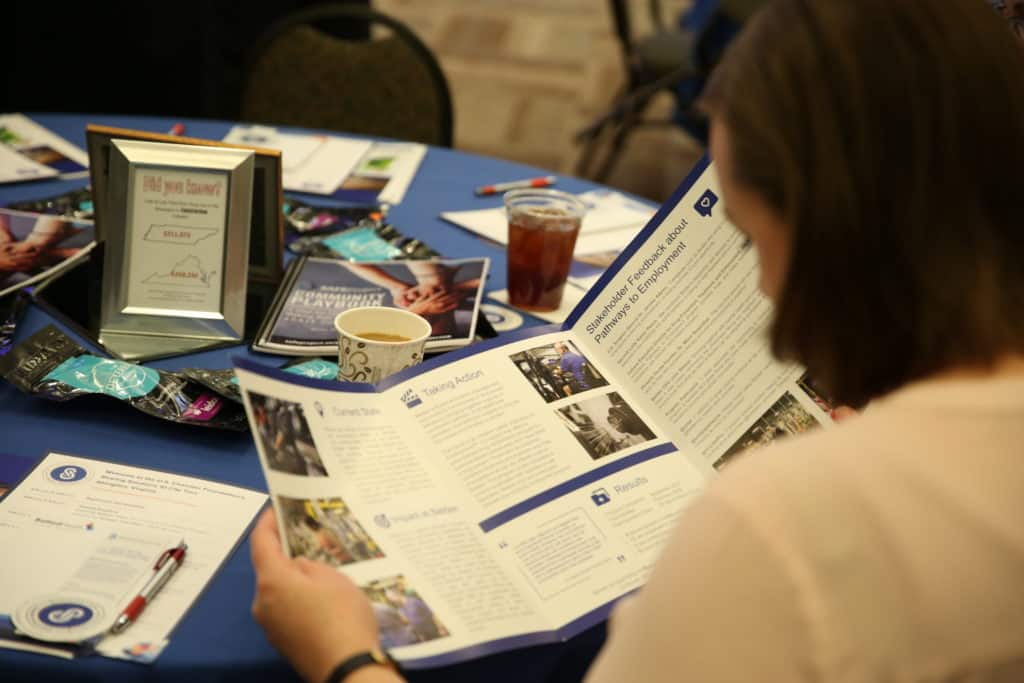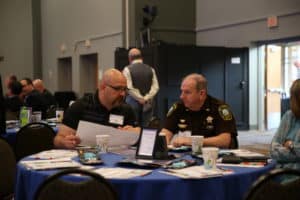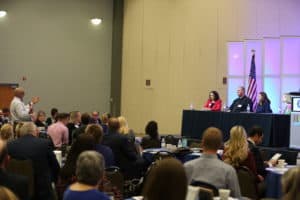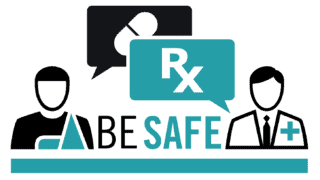Written by Josie Beets, Senior Director of National Coordination
Employers can help find hope in recovery and become a part of someone’s recovery story.

Jason Prichard has 7 years in recovery. Two years ago, he was released from five years of incarceration with a mission: using the catalog of resources he had created through research when in jail, help himself and others create sustainable recovery and find employment.
Lisa Topshee was sitting at a local prevention coalition meeting when a young man in the audience started answering others questions about where they could find recovery resources. He knew more than she did, and she’d been doing this a long time. Afterward, she met the young man, Jason Prichard, and set a time to follow up.
In recognition of the growing demand that communities do more to combat the opioid epidemic, Jason and Lisa’s story is part of a growing body of innovative local actions and solutions featured in the U.S. Chamber Foundation’s Sharing Solutions 10-City Tour, launched on April 11 in Abingdon, Virginia. Attended by more than 200 business owners, substance use disorder advocates, physicians, pharmacists, law enforcement, and people in recovery, the event is the first in a series of events to highlight how employers and community can work together to put forward solutions to the opioid crisis.

After Jason put in the work and became a Certified Peer Recovery Specialist, a job opened at a local health system. Jason applied and aced the interview. Also, it turns out the employer was part of Lisa’s coalition, and Lisa was able to emphasize Jason’s already stellar skills.
Now, Jason serves his community as an advocate for his recovery community and an example of how employers can bring people in recovery into their workforce and be a part of someone’s recovery story.
SAFE Project is proud to be a part of the U.S. Chamber of Commerce Foundation Sharing Solutions 10-City Tour. Upcoming events include Lexington, KY; Columbus, OH; Reading, PA; Erie, PA; and a national convening in Washington, DC. Click here to learn more about the Sharing Solutions initiative.
Photo credit: U.S. Chamber of Commerce Foundation




